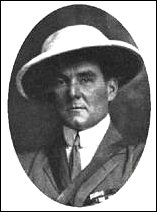Many of the Bush supporters I spoke to were educated, well-informed people. They watched the news and took pleasure in debating politics. And yet they clung to views about important matters of fact that were demonstrably wrong. Steven Kull, the public opinion expert at the University of Maryland who authored the study from which these numbers are drawn, acknowledges that although one reason they "cling so tightly to beliefs that have been so visibly refuted...is that they continue to hear the Bush administration confirming these beliefs," the prevalence, and persistence, of these misperceptions is "probably not due to a simple failure to pay attention to the news." Rather, Kull writes, "Bush supporters cling to these beliefs because they are necessary for their support for the decision to go to war with Iraq":
Asked whether the US should have gone to war with Iraq if US intelligence had concluded that Iraq was not making WMD or providing support to al Qaeda, 58 percent of Bush supporters said the US should not have, and 61 percent assume that in this case the president would not have. To support the president and to accept that he took the US to war based on mistaken assumptions is difficult to bear, especially in light of the continuing costs in terms of lives and money. Apparently, to avoid this cognitive dissonance, Bush supporters suppress awareness of unsettling information.[7]
This analysis suggests the difficulties Kerry faced in pressing home his highly "fact-dependent" argument that the Iraq war was separate from the war on terror and thus a mistaken distraction from it. Not only did accepting the point require a good deal of sophistication and knowledge, not only did it seem to contradict the evidence on Americans' television screens each night, which often showed vivid depictions of terrorism in Iraq; it also seemed to imply to some voters that they should take what must have seemed an unpatriotic position. For if they accepted the false pretenses on which the war had been based, how could they go on supporting it, as Kerry, somewhat illogically and even dishonestly, seemed to be asking them to do?

No comments:
Post a Comment